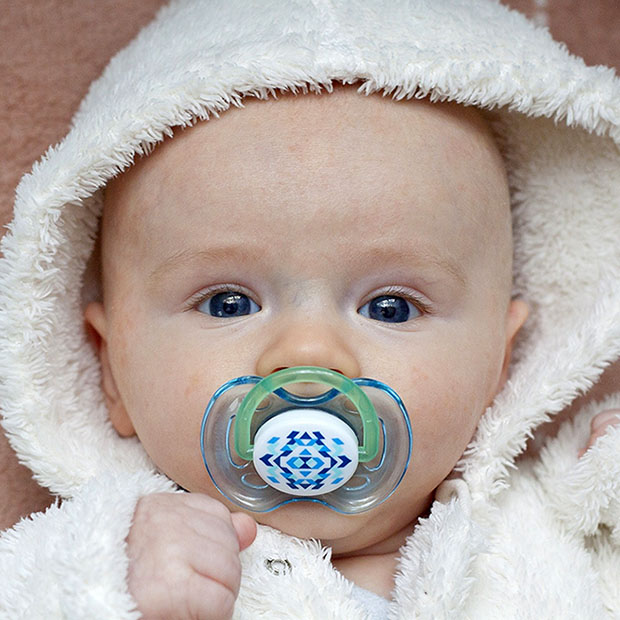Thumbsucking, Pacifiers, and Kids’ Teeth

There are so many different aspects to raising a young child.
They outgrow their clothes every other month, they learn how to get past all your best child-proofing strategies, and when is it time to try potty-training? As a pediatric dental practice, we can’t help you out with problems like those, but we’ve got your back when it comes to how your child’s teeth and jaws are developing. That brings us to the effects of continued pacifier use or thumbsucking after the toddler years.
Don’t Get Us Wrong: Thumbsucking and Pacifiers Are Good!
Sucking on things is a natural reflex for babies. It feels soothing and comforting to them, which makes using a pacifier or sucking on their thumb a good way to keep them feeling safe and happy throughout infancy and toddlerhood. Benefits (for the parents as well as the child) include:
- helping Baby (and therefore Mom and Dad) sleep
- helping Baby stay calm when separated from parents
- reducing the risk of Sudden Infant Death Syndrome (SIDS)
…Until They’re Not.
Beyond a certain age, a thumbsucking habit or frequent pacifier use begin to have harmful effects on the way a child’s permanent teeth grow in, as well as the overall shape of their dental arch. Don’t get worried about this too soon, though, because most children will grow out of these habits by age four without much help. If they don’t, that’s when it’s time to add some encouragement.
Dos and Don’ts of Breaking a Thumbsucking Habit
Ending a pacifier habit can be as simple as taking the pacifier away or gradually trimming it down until the child loses interest. Thumbsucking can be trickier, however. We don’t recommend trying to stop a young toddler from sucking their thumb, because they’re too young to understand and will most likely only be distressed. A popular solution is to apply a nasty-tasting topical aid, but these can be ineffective or harmful.
Here are some strategies we recommend:
- Praise success rather than scolding continued thumbsucking.
- Give them plenty of activities to keep both hands occupied, such as arts and crafts.
- Cover their hands with socks to prevent thumbsucking while they sleep (this may require taping the socks in place).
We Can Help
If your little one is getting older and showing no sign of stopping using a pacifier or sucking their thumb on their own, don’t hesitate to come to us with your questions and concerns. Together, we can come up with a great strategy to help your child outgrow these habits and keep their dental development on track!
